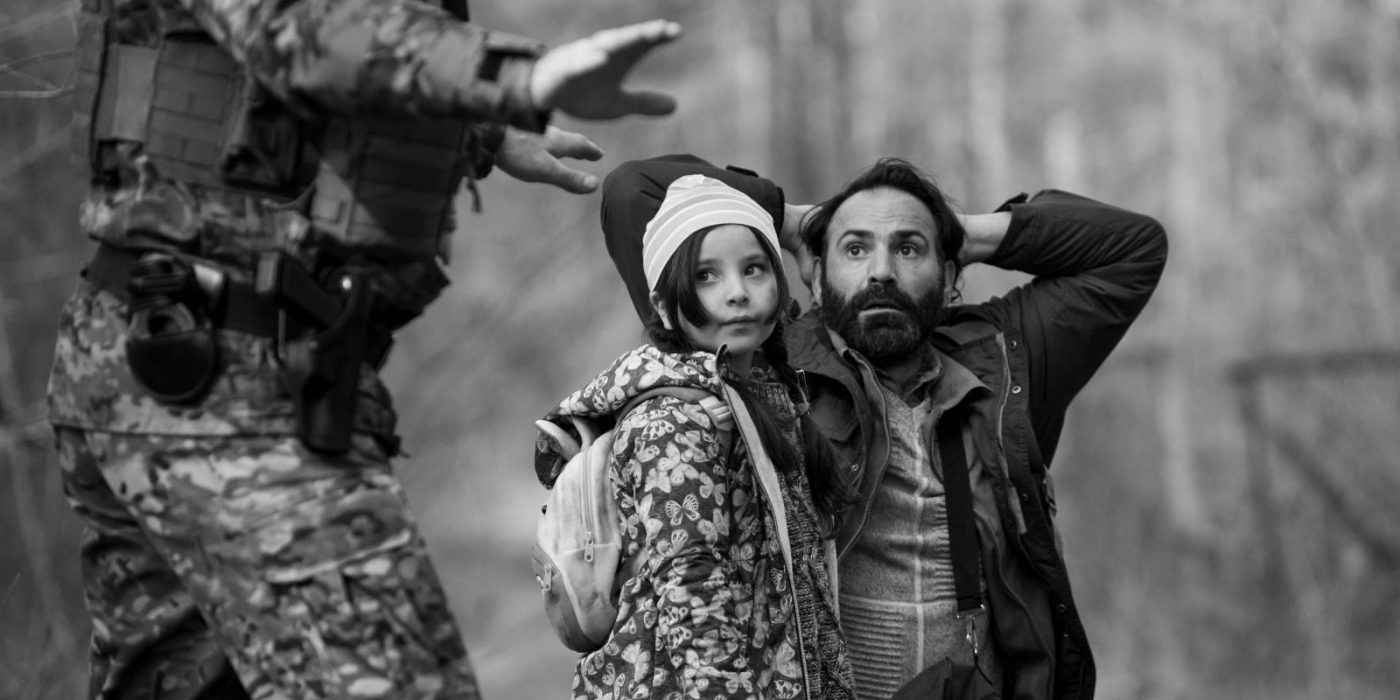Poland’s Justice Minister Zbigniew Ziobro, along with several politicians from the ruling parties, have launched vehement criticism against Agnieszka Holland’s latest film, “Green Borders.” The film, which sheds light on the refugee crisis at the Polish-Belarusian border, premiered today in the main competition at the Venice International Film Festival. Ziobro, who chairs the far-right ruling party Sovereign Poland, went as far as likening the film to Nazi propaganda, according to the Associated Press. However, notable figures in Polish culture have expressed their support for the director.
The film, which also received backing from the Czech State Cinematography Fund, delves into the humanitarian crisis faced by refugees stranded at the border between Belarus and EU member states Poland, Lithuania, and Latvia, two years ago.
“In the Third Reich, the Germans produced propaganda films depicting Poles as bandits and murderers. Today they have Agnieszka Hollande to do it,” Ziobro stated on his social media account, formerly Twitter, on Monday.
Gazeta Wyborcza reported on its website that Culture Minister Piotr Gliński, a member of the ruling Law and Justice (PiS) party, clarified that the film was not financed by the ministry or the Polish Film Institute and would not be premiered. Krystyna Pawlowicz, a Constitutional Court judge and former PiS MP, accused Hollande on the same social network of using a “stupid, false, irresponsible, disgusting pamphlet to anger Poles against their defenders.”
As per the film festival’s program description, the feature film dramatizes a tragedy set along the “green border,” depicted as swamps and forests. It weaves the stories of a Polish humanitarian activist, a young Polish border guard, and a Syrian family on the run.
Agnieszka Holland has long been critical of the Polish government’s stern stance toward refugees and migrants, a perspective she has conveyed in this film, as reported by AP.
Maja Ostaszewska, a renowned Polish actress who stars in the film, condemned the comments made by politicians from the ruling parties, calling them an “insulting, manipulative attack” on both the artist (Holland) and on freedom of speech and creation. She expressed hope that fellow filmmakers in Poland would stand against such attacks.
Magdalena Środová, a prominent Polish philosopher known for her criticism of PiS and its allies, argued that Ziobro’s strong reaction to Holland’s film highlights the authoritarianism of the current government and the Minister of Justice’s aggression towards those exposing the truth about the tragic border situation, which she attributes to the policies of the PiS government. According to Środová, this party is concealing its fear of the truth with hatred toward truth-tellers.
In 2021, Belarusian dictator Alexander Lukashenko invited refugees from the Middle East and Africa into Belarus, offering them visas and flights to Minsk, directing them towards the EU border. Poland accused Lukashenko, a Russian ally, of using refugees as a hybrid weapon to destabilize the region. Polish border guards sometimes forcibly pushed them back to the Belarusian side or denied them asylum applications. In the summer of 2021, migrants were stranded in a “no man’s land” between Poland and Belarus, receiving inadequate humanitarian and medical assistance.
Reports from aid workers indicated that dozens of refugees lost their lives in this border zone.
“I understand that a training camp of cruelty is being built on the border. In my opinion, it was a purely political decision,” Hollande said in an interview with the Polish edition of Newsweek magazine. She accused populists in Poland and other countries of exploiting migration with a shortsighted and inhumane attitude for political gain.
Source: ceskenoviny.cz


















